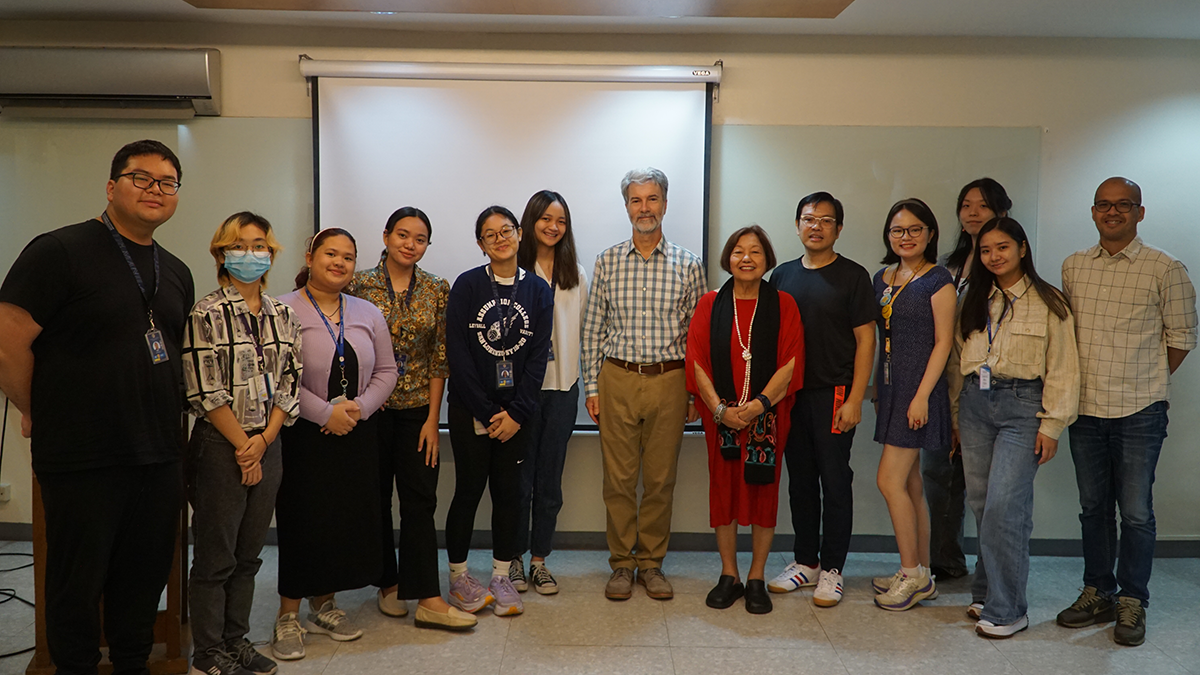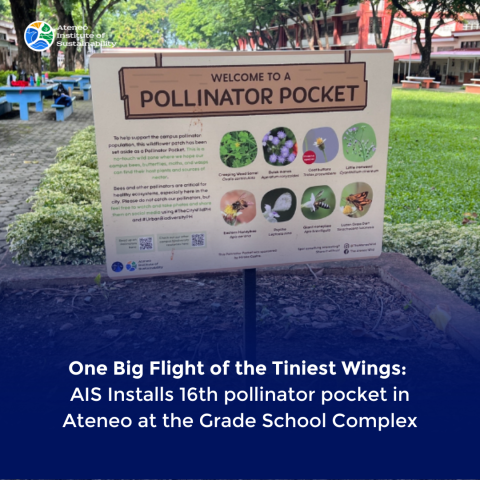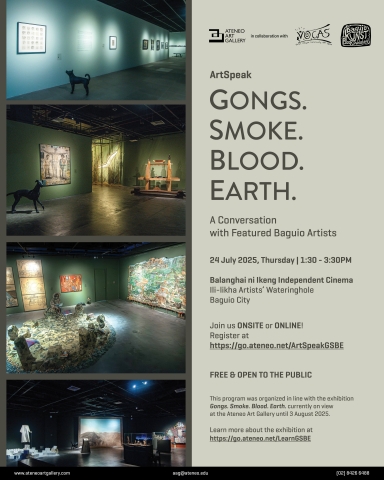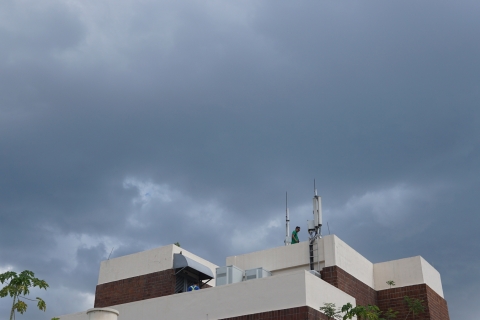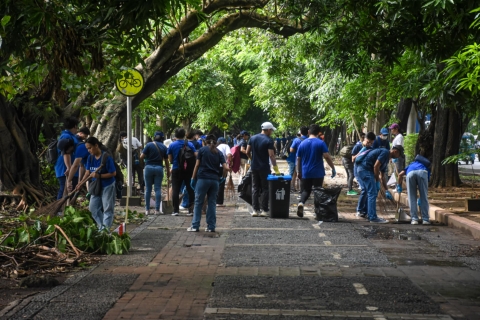Ateneo's LCSP, CCARPH and DSA host lecture on COP30 and the challenges the climate conference faces
18 Jun 2025
Ateneo de Manila University's Literary and Cultural Studies Program – in cooperation with Coastal Cities at Risk in the Philippines (CCARPH), the Department of Anthropology and Sociology (DSA), Kritika Kultura, PLUME, and KLIMA: Climate Literacy – hosted a lecture by Dr Carlos Milani, Professor of International Relations at the Rio de Janeiro State University's Institute of Social and Political Studies.
Dr Milani's lecture tackled the upcoming 30th Conference of the Parties (COP30) of the United Nations Framework Convention on Climate Change (UNFCCC) to be held in November in Brazil and the challenges that the international community must confront in order to achieve positive and necessary results.
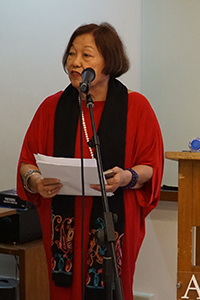
The event was opened by Dr Emma Porio, Project Leader and Principal Investigator at CCARPH and Professor Emeritus at Ateneo de Manila University. In introducing Dr Milani, she said that those in attendance were fortunate to learn from one of the leading voices in the Global South regarding the discourse and practice of climate change politics.
In addition, Dr Porio also presented some of her work at CCARPH on bridging the science-policy-practice nexus in the Philippines, and the need to invest in climate and disaster resilience for climate justice.
Dr Porio was followed by Dr Enrique Niño P Leviste, current Director of the IPC and Chair of DSA at the Dr Rosita G Leong School of Social Sciences at Ateneo.
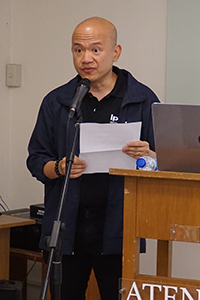
In his address, Dr Leviste said that Dr Milani's work compels us to ask not just about what a just energy transition looks like, but also who must lead it. He also stated that climate politics is not just about emissions or negotiations, rather, it is also about power and accountability, as well as "the kinds of futures that we are willing to fight for."
Dr Milani started with a background on the UNFCCC and COP30. The former is the UN's process for negotiating agreements to limit dangerous climate change. The latter serves as yearly formal meetings of the UNFCCC parties – the Conference of the Parties – to assess progress in dealing with climate change.
This year's COP, its 30th edition, will take place in Belém, Brazil. With this in mind, Dr Milani gave a short introduction of the history of Brazil's climate governance and national greenhouse gas emissions.
This included current issues with climate obstruction in the region. This involves multi-scalar and multi-stakeholder efforts to slow or block policies on climate change that are commensurate with the current scientific consensus on stemming dangerous anthropogenic interference with the climate system.
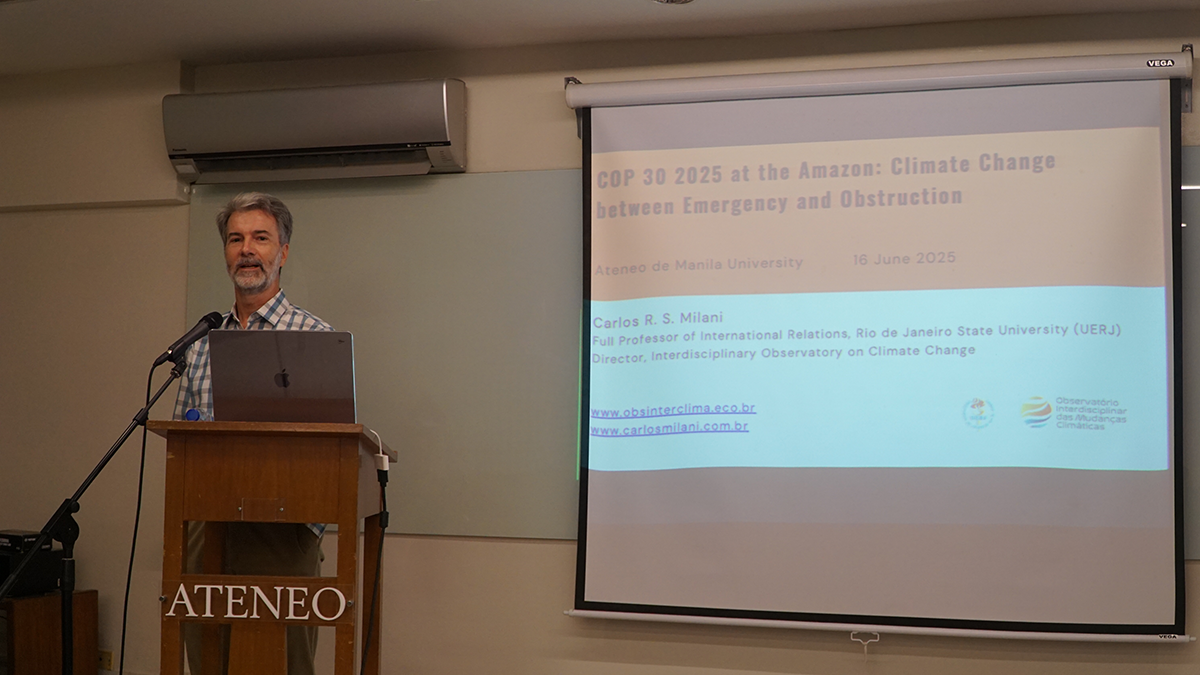
Dr Milani discussed the agenda of COP30. In particular, the conference would focus on the following items: climate finance and adaptation; support for the multilateral institutions and integration of negotiation paths regarding climate, biodiversity, desertification and the UN sustainable development goals; and climate information integrity and respect for science.
According to him, COP30 will have the following four pillars: Mobilization to transform decisions into actions; an Agenda of Action for UNFCCC's Nationally Determined Contributions (NDCs) for the coming years with higher ambitions; Negotiations on climate finance and adaptation; and a Leaders Summit with key commitments.
Dr Milani concluded by stating that we still have time, but that governments need to act now to cope with the Paris Accord and the commitment to reducing global warming to around 1.5 degrees Centigrade.
He also reiterated that climate obstruction, on both the local and global levels, is well-organized in Brazil and needs to be considered for us to understand the gap between science and policy.
Finally, fighting against climate disinformation and resisting climate obstruction are essential for the comprehensive implementation of climate commitments and policies.
Following the talk, Dr Milani engaged in a short but lively open forum with the students in attendance.
You can watch Dr Milani's lecture below.




